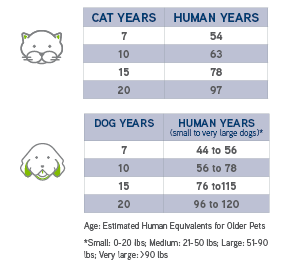How do I know when my pet is a senior, and how should I care for them?
September is Senior Pet Health Month. On average, pets age seven times faster than people. So how do you know when your pet is considered a senior? Typically, dogs and cats are considered senior when they’re about seven years old. Of course, size and breed have a lot of bearing on the aging process, and cats generally live longer than dogs.
Just like us, pets tend to require more TLC as they age, and they are more prone to developing health problems like arthritis, cancer, kidney disease, heart disease, liver disease, thyroid conditions, and diabetes. While aging itself is not a disease, according to Vetstreet, there are a few symptoms you should keep an eye on when it comes to caring for your older pet:
-
- Changes in weight (especially weight loss)
-
-
- Decreased appetite or lack of appetite
-
- Increased water consumption
-
- Changes in urine or stool patterns
-
- New lumps, bumps or swellings — or changes in existing ones
-
- Persistent cough
-
- Difficulty breathing or breathing heavily or rapidly at rest
-
- Sudden collapse or weakness
-
- Difficulty climbing stairs or jumping
-
- Foul mouth odor or drooling
-
- Seizure or convulsions
-
- Disorientation
If you are noticing any of these signs in your senior pet, it might be time for a check up. Request an appointment through our app 📲 or contact us here, so we can perform a nose-to-tail exam and create a plan for their senior care.

